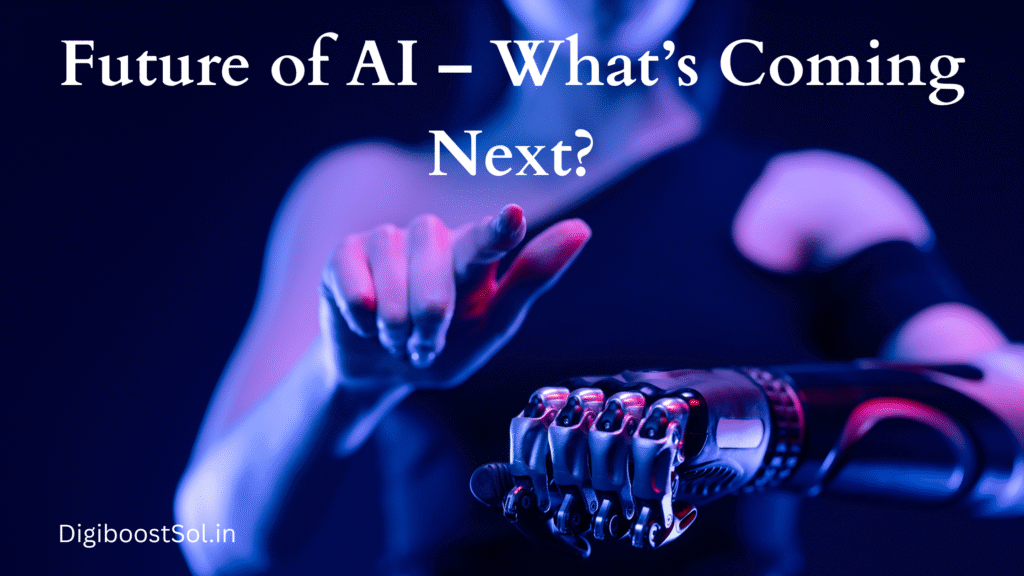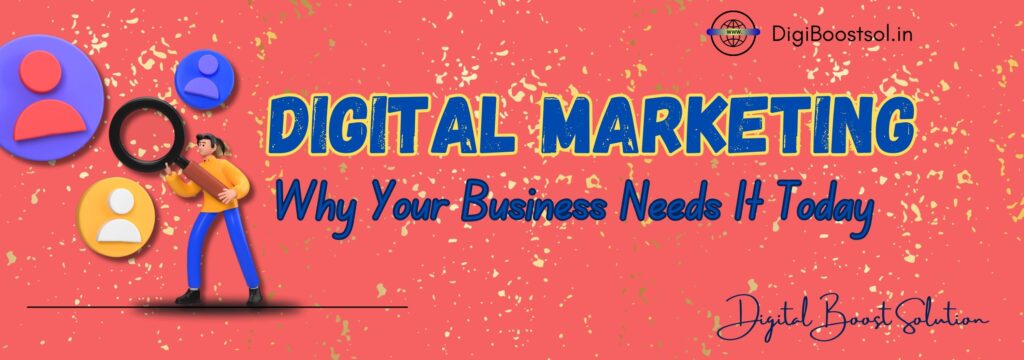What is the Future of AI?
Artificial Intelligence (AI) is one of the most transformative technologies of our time. It is reshaping industries, changing how we interact with machines, and opening up possibilities that were once science fiction. But as AI continues to evolve at an incredible pace, one question remains at the forefront: What is the future of AI?
In this blog post, we will explore the potential paths AI might take, its future impact on various industries, benefits, challenges, and what we can expect in the next decade.

Understanding AI Today
Before we dive into the future, it’s essential to understand where AI stands today. Artificial Intelligence refers to the simulation of human intelligence by machines. This includes learning (machine learning), reasoning, problem-solving, perception, and language understanding.
Today, AI is already present in many aspects of our lives:
- Virtual assistants like Siri and Alexa
- Recommendation systems on Netflix and Amazon
- Self-driving car technologies
- AI chatbots and customer support
- Facial recognition in smartphones and security systems
These applications represent just the beginning.
1. The Future of AI in Daily Life
In the coming years, AI will become even more deeply embedded in our everyday lives. Some expected advancements include:
- Smarter virtual assistants can manage complex tasks, such as planning travel, scheduling meetings, or even giving mental health support.
- Personalized healthcare monitoring using AI-driven wearable devices that track vital signs and provide early warnings.
- AI in smart homes to optimize energy usage, enhance security, and personalize entertainment.
AI will make life more convenient, efficient, and connected.
2. AI in Healthcare
Healthcare is one of the fields that will benefit the most from AI. Some future applications include:
- AI-assisted diagnosis: Machines will help doctors detect diseases like cancer, heart problems, and neurological disorders more accurately and earlier than ever before.
- Robotic surgeries: AI-powered surgical robots will perform complex procedures with precision and fewer errors.
- Drug discovery: AI will significantly speed up the process of discovering new medicines by analyzing huge datasets quickly.
AI in healthcare means better patient outcomes, reduced costs, and faster treatments.
3. AI in Education
AI will change how we learn and teach. In the future:
- AI tutors could provide personalized learning experiences for students, adapting to their learning styles and pace.
- Automated grading systems will reduce the workload for teachers and provide instant feedback to students.
- AI-driven career guidance can help students choose the right path based on their skills and interests.
Education will become more personalized, accessible, and efficient thanks to AI.
4. AI in Business and Industry
In the business world, AI is already playing a big role — and its future is even bigger.
- Predictive analytics will allow companies to forecast market trends, customer behavior, and risks with high accuracy.
- AI in customer service will include voice-based bots that can handle complex customer queries 24/7.
- Automation of repetitive tasks will free up human workers to focus on creative and strategic tasks.
AI will not replace jobs entirely but will change the nature of work, requiring new skills and adaptability.
5. The Rise of General AI
Most AI systems today are “narrow AI” — designed to perform a specific task. The future, however, may bring us closer to Artificial General Intelligence (AGI) — machines that can perform any intellectual task a human can do.
While AGI is still theoretical, tech giants like OpenAI, Google DeepMind, and others are actively researching it. If achieved, AGI could revolutionize everything — but it also brings serious ethical and control challenges.
6. Ethical Challenges and AI Regulation
With great power comes great responsibility. The future of AI must also address ethical concerns:
- Bias in AI systems can lead to unfair decisions in hiring, lending, law enforcement, etc.
- Job displacement due to automation is a real concern for many workers.
- Data privacy is at risk as AI systems collect and analyze vast amounts of personal data.
- Deepfakes and misinformation are rising threats powered by AI.
To address these issues, governments and tech companies will need to work together to create clear regulations and ethical guidelines.
7. AI and Human Collaboration
Rather than replacing humans, the future of AI is more likely to be about collaboration between humans and machines. This is often called “augmented intelligence.”
- AI will assist doctors, not replace them.
- AI will support teachers, not eliminate them.
- AI will guide decision-makers, not become them.
By working together, humans and AI can achieve more than they could alone.
8. The Global Impact of AI
AI will not just affect developed countries — it has the potential to solve big problems globally:
- AI in agriculture can help farmers improve crop yields and fight pests.
- AI in disaster prediction can save lives by providing early warnings for floods, earthquakes, and storms.
- AI in financial inclusion can provide banking and credit access to people in remote areas.
The challenge is ensuring equal access to AI technology across countries and communities.
Conclusion: A Powerful but Responsible Future
The future of AI is full of possibilities. From transforming healthcare and education to reshaping industries and daily life, AI holds the key to a smarter, more efficient, and connected world.
But with this power comes responsibility. As we move forward, we must ensure that AI is developed and used ethically, transparently, and inclusively. Human values must always remain at the center of technological progress.
In short, the future of AI isn’t just about machines — it’s about how we, as humans, choose to shape and guide that future.
✅ Key Takeaways:
- AI will become more present in everyday life
- Healthcare, education, and industries will be deeply transformed
- Ethical use and regulations are essential
- The AI-human collaboration will define success
- General AI is the next big milestone — but also a challenge


